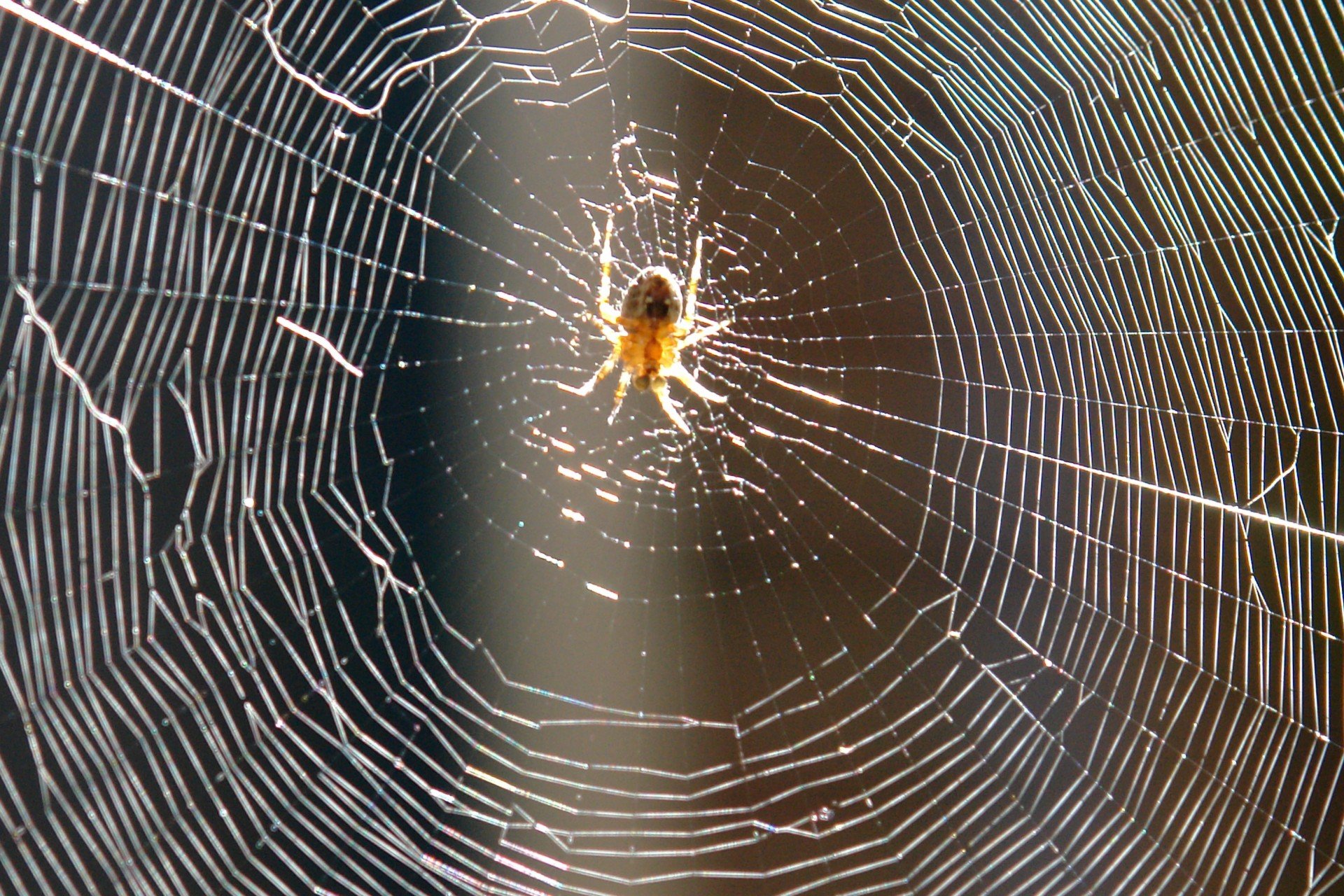Relational Somatic Experiencing
A spider’s web is an extension of its brain. Human relationships are an extension of our embodied being.
We are never ‘just’ a nervous system
One of the great advances in talk therapy over recent decades has been the introduction of somatic, or body-focused approaches. These would include Mindfulness, Focusing, Sensorimotor, and Somatic Experiencing, among many others. I’m trained in Peter Levine’s Somatic Experiencing, which makes use of the Polyvagal Theory of Stephen Porges to explain why animals in the wild are usually able to ‘shake off’ traumatic events, while humans often suffer from PTSD. Approaches such as Somatic Experiencing, that support the client to sense the body, help us to find the ways in which the nervous system can release the trauma.
That’s the theory, at least. And it does work beautifully with many people. But the most traumatised people - those that have suffered developmental trauma, or repeated abuse - are almost completely unable to sense their bodies. This is partly because the body has come to feel unsafe through repeated dissociations (the individual has had to mentally leave their body to escape an unavoidable trauma), but it is also because of something that SE and other body-sensing modalities largely ignore, that is central to counselling, which is relationality.
The body and nervous system can only heal if the relational support for that is present.
It can be useful to regard human beings as nervous systems, because it helps us to focus on being in the body, which is what we must do in order to release the trauma. But the problem with this approach is that it obscures what is most characteristic of humans: not our intelligence, but our capacity for social co-operation and relationship.
A recent study of spiders found that the spider’s web should be understood as an extension of its Central Nervous System, or brain.* The web is what allows spiders with miniscule brains to perform complex operations like counting. If we make changes to the spider’s brain, as in those fascinating experiments where spiders were given LSD, cannabis or coffee, the web they weave looks different; and if we make changes to the web, by tightening or loosening strands of web, then it changes the spider’s behaviour. Philosophers have speculated that human consciousness might be similar to this, for example in the way that we use technology to extend the capacity of the mind.**
However, by another analogy, we might say that relationships are extensions of the human emotional and bodily system. Humans do not have emotions in isolation, so much as they have them in the context of the social web that surrounds them. Whatever our social connections regard as shameful or wrong will create emotions of guilt and shame in the individual. In one society, murder might be regarded as an unforgivable sin; while in another warriors might be expected to kill members of another group, as a test of prowess and honour. Guilt and shame are the internal enforcers of societal and familial norms. Guilt tells me I have done wrong, and shame tells me that more fundamentally I am wrong, in my being.
If when I am hurt in some way, my pain is felt by those around me, and they respond with interest, concern and support, then I can feel safe within my relational web. If others respond to my pain with disinterest, tell me to toughen up, ‘don’t be so emotional’, ‘don’t wallow’, and other shaming remarks, then I know that I’m on my own. In the latter situation, I learn that I must repress and suppress my feelings in order to belong. And since belonging is not optional for human beings, all of us do this. Social shame is experienced by humans as deeply distressing, because instinctually we feel that to be cast out of the tribe means death.
The Academy Award-winning film ‘Belfast’ (2021), written by Kenneth Branagh, is a portrayal of a working-class neighbourhood in the city just before the Troubles, in 1969. Ten year old Buddy’s grandfather, Pop, who is terminally ill in hospital, beautifully played by Ciarán Hinds, explains what it means to be Buddy:
Pop You know who you are, don’t you?
Buddy Yes, Pop.
Pop You’re Buddy, from Belfast 15, where everybody knows you. And your Pop looks out for you. And your Daddy looks out for you. Your Mammy looks out for you. Your Granny looks out for you. Your brother looks out for you. The whole family looks out for you. And wherever you go, and whatever you become, that’ll always be the truth. And that thought’ll keep you safe; it’ll keep you happy. You remember that for me?
Buddy Yes, Pop.
Pop Aye, fine man you are.
My father was born just a few streets away from Buddy, though his upbringing was, by contrast, an emotionally deprived one. Watching this scene, I felt something inflate gently inside me, and this feeling was accompanied by an image that was something like the spokes of a bicycle wheel, radiating from a central space. It was a beautiful feeling: my body’s response to the recognition of what a happy family feels like. Imaginatively and somatically, I felt myself for a moment to be Buddy, happily floating within a web of loving connections. Emotional co-regulation is the regulation of emotions within such a web of relationships, within a ‘super-system’ that has a capacity far greater than any individual can possess; those that are unable to do this in early life, due to parental failures or absence, are forced to ‘auto-regulate’ in order to survive, with often dire consequences. A human being is not designed to cope alone.
Trauma needs to be understood as not only a single event that happened to an otherwise healthy person, but also as an event that ripples out through the relational web. People rarely, if ever, suffer from PTSD unless the web is already damaged. And they will not recover well unless the web can be mended.
This is why it’s said that ‘the relationship is the therapy’. To be successful, a therapeutic relationship must be both relational and embodied. Good relational therapy involves paying attention to what is happening between us, and caring about getting it right. The relationship then becomes a larger container in which feelings can flow and exchange. When the individual can feel safe to have their own natural responses, safe in the knowledge that someone cares and is affected, this is the best basis for the nervous system to change and heal.
“And that thought’ll keep you safe; it’ll keep you happy”.
(c) Dylan Burns 2022
* Japyassú, H.F., Laland, K.N. Extended spider cognition. Anim Cogn 20, 375–395 (2017). https://doi.org/10.1007/s10071-017-1069-7 accessed 15th April 2022.
** Clark, A., Chalmers, D.K., The Extended Mind. Published in Analysis 58:10-23, 1998. Reprinted in (P. Grim, ed) The Philosopher's Annual, vol XXI, 1998. http://consc.net/papers/extended.html accessed 15th April 2022.

